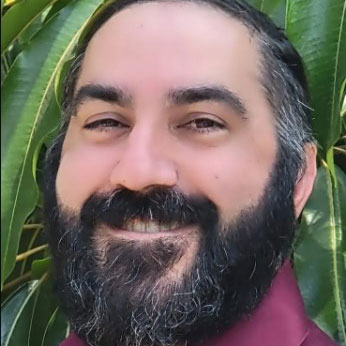By We Level Up Lawrenceville NJ | Author Kate Byrd, PharmD | Editorial Policy | Research Policy
Breaking free from drug dependency begins with detoxification. At We Level Up NJ, we understand that taking this step feels overwhelming, and maybe even impossible right now. That fear is normal, but you don’t have to face it alone.
Our Lawrenceville, New Jersey, facility offers a sanctuary where healing begins under compassionate, expert supervision. Unlike trying to quit “cold turkey” at home (which can be dangerous and even life-threatening for some substances), our medical detox program provides a safe foundation for your recovery journey.
Whether you’re struggling with opioids, alcohol, benzodiazepines, or other substances, our team creates personalized detox plans that manage withdrawal symptoms while preparing you for long-term recovery. Because detox isn’t just about getting substances out of your system: it’s about beginning a new chapter of your life.
What Is Drug Detox and Why It Matters
Drug detoxification is the process by which your body clears itself of substances while medical professionals manage the physical and psychological withdrawal symptoms that follow. It allows your system to begin healing from the effects of prolonged substance use.
According to the Substance Abuse and Mental Health Services Administration (SAMHSA), proper detoxification includes three essential components: evaluation, stabilization, and preparing you for ongoing treatment.
Why does professional detox matter so much? The statistics tell a powerful story. Research from the National Institute on Drug Abuse (NIDA) shows that medically supervised detox significantly increases your chances of completing this critical first phase of recovery. Many who attempt detox alone relapse quickly due to intense withdrawal symptoms or inadequate preparation for what follows.
But here’s what’s vital to understand: detox alone isn’t treatment. It’s the necessary beginning that prepares you for the real work of recovery. That’s why our New Jersey facility integrates detox with comprehensive treatment planning from day one.
Skip to:
The Risks of Detoxing Without Professional Help
Attempting to detox at home can be dangerous – and in some cases, fatal. Without medical oversight, withdrawal symptoms can escalate from uncomfortable to life-threatening quickly.
For alcohol and benzodiazepines, unsupervised withdrawal can lead to seizures, severe dehydration, and delirium tremens (DTs) – a serious condition with a mortality rate of up to 37% without treatment. According to the Journal of Internal Medicine, sudden alcohol withdrawal can trigger cardiovascular complications, including heart arrhythmias and elevated blood pressure.
For opioids, while withdrawal is rarely fatal, the intense symptoms drive many people back to using, often with a lowered tolerance that increases overdose risk. An analysis by the Journal of Urban Health showed that the period immediately following detox is when people are most vulnerable to fatal overdose.

At We Level Up NJ, our medical team monitors vital signs, administers medications when appropriate, and ensures your safety throughout the entire detox process, turning what could be a dangerous experience into a manageable first step toward recovery.
Drug Detox Statistics
The frequency, length, and substance type of drug use are only a few variables that affect how well each patient responds to treatment.
42%
Sadly, less than 42% of those who seek treatment for drug and alcohol abuse really finish it.
Source: NIDA
80%
After finishing drug and alcohol rehab, around 80% of patients say that their quality of life and health have improved.
Source: NIDA
80-95%
In the first year following treatment, there is an 80 to 95 percent recurrence rate for opioids.
Source: NIDA

Get Your Life Back
Find Hope & Recovery. Get Safe Comfortable Detox, Addiction Rehab & Mental Health Dual Diagnosis High-Quality Care at the We Level Up Treatment Centers Network.
Hotline (877) 378-4154Why Choose We Level Up NJ for Drug Detox?
Nestled in the tranquil setting of Lawrenceville, our facility offers the perfect balance – close enough to major New Jersey communities for convenience, yet removed enough to provide the peaceful environment essential for early recovery.
Our approach stands apart through:
- Medical Excellence: Our detox program is supervised by board-certified physicians and experienced nursing staff. This isn’t just about comfort; it’s about safety.
- Personalized Protocols: We recognize that withdrawal varies dramatically between substances and individuals. Your detox plan is tailored specifically to your unique medical history, substance use patterns, and personal needs.
- Dual Diagnosis Focus: More than 25% of people with substance use disorders also have co-occurring mental health conditions (according to SAMHSA). Our clinical team addresses both simultaneously, treating the whole person rather than just the addiction.
- Comfort-Focused Environment: Private and semi-private rooms, nutritious meals, and therapeutic amenities help ease the detox process.
- Seamless Transition to Treatment: Unlike standalone detox facilities, we offer continuous care from detox through residential and outpatient treatment—all under one roof in our New Jersey facility.
Our Joint Commission accreditation and consistently high patient satisfaction ratings reflect our commitment to excellence in addiction treatment. But what truly sets us apart is our staff’s genuine dedication to your recovery journey.
What to Expect During Drug Detox at We Level Up NJ
Understanding the detox process can help alleviate fears of the unknown. Here’s what your journey at We Level Up NJ typically includes:
Initial Assessment (Day 1)
Your first 24 hours include a comprehensive evaluation where our medical team:
- Conducts physical and psychological assessments
- Reviews your substance use history and patterns
- Tests for substances in your system
- Screens for co-occurring mental health conditions
- Develops your personalized detox plan
This thorough approach allows us to anticipate withdrawal symptoms and prepare appropriate interventions before they occur.
Medical Stabilization (Days 2-7, varies by substance)
During this phase—often the most challenging—our medical team:
- Monitors your vital signs around the clock
- Administers FDA-approved medications to manage withdrawal symptoms
- Provides nutritional support to begin healing your body
- Begins addressing sleep issues common in early recovery
- Offers emotional support through the discomfort
For opioid detox, medications like buprenorphine significantly reduce withdrawal severity. For alcohol, medications like Librium (chlordiazepoxide) help prevent dangerous complications while easing discomfort.
Transition Planning (Final Days of Detox)
As your body stabilizes, we shift focus to:
- Introducing therapeutic support groups
- Beginning individual counseling sessions
- Educating you about addiction and recovery principles
- Developing your continuing treatment plan
- Preparing you mentally for the next phase of recovery
This gradual transition ensures you’re physically, emotionally, and psychologically ready to engage in comprehensive addiction treatment—the critical next step after detox.
Comfortable Facilities & Amenities
High-Quality Addiction & Mental Health Rehabilitation Treatment
Rehab Centers TourRenowned Addiction Centers. Serene Private Facilities. Inpatient rehab programs vary.
Addiction Helpline (877) 378-4154Proven recovery success experience, backed by a Team w/ History of:
15+
Years of Unified Experience
100s
5-Star Reviews Across Our Centers
10K
Recovery Success Stories Across Our Network
- Low Patient to Therapist Ratio
- Onsite Medical Detox Center
- Comprehensive Dual-Diagnosis Treatment
- Complimentary Family & Alumni Programs
- Coaching, Recovery & Personal Development Events
Common Substances We Treat in Detox
Opioid Detox
Whether prescription painkillers or heroin, opioid withdrawal produces intense flu-like symptoms that peak within 72 hours. Our medical team utilizes:
- Medication-Assisted Treatment (MAT) with buprenorphine or methadone to reduce cravings and symptoms
- Comfort medications for specific symptoms like insomnia or muscle aches
- Gradual tapering protocols that minimize withdrawal severity
According to data from the New Jersey Department of Human Services, medication-assisted approaches to opioid detox increase completion rates by up to 65% compared to non-medical approaches.
Alcohol Detox
Alcohol withdrawal can progress from tremors and anxiety to potentially life-threatening seizures or delirium tremens. Our alcohol detox protocol includes:
- Medically supervised use of benzodiazepines to prevent serious complications
- Nutritional supplementation (particularly B vitamins) to address deficiencies
- Hydration therapy and electrolyte management
- Continuous monitoring for withdrawal progression
Benzodiazepine Detox
Benzodiazepine withdrawal shares risks similar to alcohol withdrawal, including seizure potential.
Our approach includes:
- Extremely gradual tapering schedules (sometimes spanning weeks)
- Possibly transitioning to longer-acting benzodiazepines before tapering
- Anti-seizure medications when appropriate
- Careful monitoring of vital signs and neurological symptoms
Each substance requires distinct medical protocols, which is why our team’s specialized experience with various types of detox is crucial to your safety and comfort.
Stimulant Detox (Cocaine, Methamphetamine, Prescription Stimulants)
While stimulant withdrawal doesn’t typically cause physical dangers, the psychological symptoms—including intense depression and cravings—require careful management through:
- Mood-stabilizing medications when appropriate
- Sleep support interventions
- Structured activities to manage the “crash” phase
- Particularly attentive psychiatric monitoring

The Role of Medical Supervision in Detox Success
Medical oversight transforms detoxification from a potentially dangerous ordeal into a managed medical process. This supervision isn’t just a luxury—it’s often a necessity that saves lives.
Take alcohol withdrawal, for instance. According to a 2022 review of scientific literature, untreated delirium tremens carries a mortality rate as high as 37%, while medically managed detox reduces this risk to less than 5%.
At We Level Up NJ, medical supervision includes:
- Continuous Vital Sign Monitoring: Our nursing staff regularly checks heart rate, blood pressure, temperature, and respiratory rate—vital indicators that can signal developing complications.
- Medication Management: Physicians adjust medications in real-time based on your symptoms and response, ensuring you receive enough support without unnecessary medication.
- Seizure Prevention: For alcohol and benzodiazepine withdrawal, medical staff implement proven protocols to prevent potentially fatal seizures.
- Addressing Complications: Pre-existing medical conditions often complicate withdrawal. Our team manages these interactions—something impossible in non-medical settings.
This level of care not only increases safety but radically improves comfort, making you significantly more likely to complete detox and continue into treatment.
How We Level Up NJ Supports You Beyond Detox
Detox is just the beginning of your recovery journey. That’s why We Level Up NJ has built a comprehensive continuum of care that seamlessly transitions you from detox to the next appropriate level of treatment.
After completing detox, our clinical team works with you to determine the best next step, which may include:
- Residential/Inpatient Treatment: Our full-immersion program provides 24/7 support, daily therapy, and a structured environment ideal for early recovery.
- Partial Hospitalization Program (PHP): A step-down option offering intensive daily treatment while you begin reintegrating into home life in the evenings.
- Intensive Outpatient Program (IOP): Flexible scheduling for those who need to balance recovery with work or family responsibilities.
Throughout each phase, we maintain a focus on:
- Dual-Diagnosis Treatment: Continuing to address any co-occurring mental health conditions like depression, anxiety, or trauma.
- Family Involvement: Including loved ones in your recovery through family therapy and education.
- Life Skills Development: Building the practical tools needed for sustainable recovery.
- Aftercare Planning: Creating a solid relapse prevention plan and connecting you with local New Jersey recovery resources.
World-class, Accredited, 5-Star Reviewed, Effective Addiction & Mental Health Programs. Complete Behavioral Health Inpatient Rehab, Detox plus Co-occuring Disorders Therapy.
CALL (877) 378-4154End the Addiction Pain. End the Emotional Rollercoaster. Get Your Life Back. Start Drug, Alcohol & Dual Diagnosis Mental Health Treatment Now. Get Free No-obligation Guidance by Substance Abuse Specialists Who Understand Addiction & Mental Health Recovery & Know How to Help.
Getting Started with Drug Detox at We Level Up NJ
Taking the first step toward recovery might feel overwhelming, but we’ve made the process as straightforward as possible:
- Call Our 24/7 Helpline: Our admissions team is available around the clock at (877) 378-4154. The call is free, confidential, and comes with no obligation.
- Insurance Verification: We work with most major insurance providers and can verify your benefits while you’re on the phone. Don’t have insurance? We’ll discuss alternative payment options.
- Initial Assessment: A brief pre-screening helps us understand your needs and prepare for your arrival.
- Admission Arrangements: We can often arrange same-day admission for those in urgent need of detox services.
- Arrival and Welcome: Our team will greet you warmly and begin the intake process, getting you settled and starting your personalized detox protocol quickly.
Your Path to Recovery Starts Here
The journey toward freedom from addiction begins with a single step, one that takes tremendous bravery. At We Level Up NJ, we honor that courage by providing the safest, most effective drug detox services in New Jersey.
Our Lawrenceville facility combines medical excellence with genuine compassion, creating an environment where healing can begin. From your first day in detox through each subsequent phase of treatment, our team stands beside you, offering guidance, support, and evidence-based care tailored to your unique needs.
We understand the fears that might be holding you back—fears about withdrawal, about facing life without substances, about whether recovery is truly possible for you. These concerns are valid, but they don’t have to define your future.
Thousands of people have sat where you’re sitting now, reading these words and wondering if they should make the call. Those who did have found their way to lives they once thought impossible.
Your new story can begin today. Call (877) 378-4154 to speak with our team about drug detox at We Level Up NJ. Take the first step—we’ll help you with the rest.

Get Help. Get Better. Get Your Life Back.
Searching for Accredited Drug & Alcohol Rehab Centers Near You? Or Mental Health Support?
Even if you have failed previously, relapsed, or are in a difficult crisis, we stand ready to support you. Our trusted behavioral health specialists will not give up on you. Call us when you feel ready or want someone to speak to about therapy alternatives to change your life. Even if we cannot assist you, we will lead you wherever you can get support. There is no obligation. Call our hotline today.
FREE Addiction Hotline – Call 24/7Ask Dr. Al: How To Overcome Drug Withdrawal? A Patient Recovery Story
Overcoming drug withdrawal can be a challenging but crucial step towards recovery. First and foremost, seeking professional guidance and support is essential. Medical supervision can help manage the physical symptoms and ensure your safety. Additionally, establishing a solid support system through friends, family, or support groups can provide emotional assistance during this challenging period. Engaging in healthy activities, such as exercise, mindfulness, and hobbies, can help occupy your mind and ease the psychological aspects of withdrawal. Finally, maintaining a positive mindset, setting realistic goals, and staying committed to your recovery journey are critical elements in successfully overcoming drug withdrawal and starting on the path to lasting sobriety.
Drug Detox Recovery Story Inspired By True Events
Dr. Al and the We Level Up drug detox treatment team played a pivotal role in helping a patient, who we will call Jane Doe, recover from drug addiction. Jane Doe had struggled with substance abuse for several years, and her life was spiraling out of control. Dr. Al and We Level Up started by providing a compassionate and nonjudgmental environment, allowing Jane Doe to share her struggles and fears.
Together, they developed a personalized treatment plan that included a combination of therapy, medication, and support from a network of addiction specialists. Dr. Al closely monitored Jane Doe’s progress, making adjustments to her treatment as needed. With his guidance and unwavering support, Jane Doe began to rebuild her life. She learned to identify triggers, manage cravings, and develop healthier coping mechanisms. Dr. Al and We Level Up’s encouragement and empathy were instrumental in Jane Doe’s journey to recovery, and over time, she regained her health, confidence, and a drug-free life. Jane Doe’s success story is a testament to the positive impact that dedicated healthcare professionals like Dr. Al can have in helping individuals overcome addiction.
Dr. Al and the We Level Up drug detox treatment team’s commitment to Jane Doe’s recovery extended far beyond the confines of the clinic. He tirelessly worked with Jane Doe to rebuild her self-esteem and self-worth, emphasizing the importance of setting achievable goals and finding purpose in her life. Together, they explored her interests and talents, helping her discover new passions that replaced the void left by drug addiction. Dr. Al and We Level Up also encouraged Jane Doe to mend relationships with her family and friends, guiding how to rebuild trust and communicate more effectively.
Over time, Jane Doe’s transformation became apparent not only to herself but to those around her as well. Dr. Al and the We Level Up team’s unwavering support continued as she transitioned to a life free from drugs. He connected her with local support groups and aftercare programs to ensure a strong foundation for her continued sobriety. Through his dedication and the tools he provided, Dr. Al not only helped Jane Doe overcome drug addiction but also empowered her to embrace a brighter, healthier, and more fulfilling future. Jane Doe’s journey is a testament to the profound impact of a caring and committed healthcare professional like Dr. Al in addiction recovery.
Introducing Dr. Al: A Specialist in Addiction Studies and Mental Health Disorders.
With over 15 years of expertise in behavioral health, Dr. Al has dedicated his career to transforming lives. He, his team, plus the We Level Up treatment center network have successfully guided countless patients through the most daunting obstacles they have ever encountered. Join Dr. Al and We Level Up on a journey toward healing and triumph. Learn more about Dr. Al here.

Frequently Asked Questions
Do you have to pay for any drug detox service in New Jersey?
Most drug detox services in New Jersey, including at We Level Up NJ, are covered at least partially by insurance. The Mental Health Parity and Addiction Equity Act requires insurance companies to cover substance use treatment similarly to how they cover medical conditions. At We Level Up NJ, we work with most major insurance providers and verify your benefits before admission. For those without insurance, we offer payment plans and can help explore options like state-funded programs, sliding scale fees, or financing arrangements.
How long does drug detox rehab last in New Jersey?
Drug detox duration in New Jersey varies depending on the substance used, usage history, and individual factors. Typically, detox ranges from 5-10 days but can be shorter or longer based on your specific situation. Opioid detox generally lasts 5-7 days, alcohol detox 5-10 days (sometimes longer for severe cases), and benzodiazepine detox can extend to 2+ weeks due to the need for gradual tapering. At We Level Up NJ, we personalize your detox timeframe based on your progress rather than rushing you through a predetermined schedule, ensuring you’re physically and mentally stable before transitioning to the next phase of treatment.
Where in New Jersey can you find drug detox rehab?
Drug detox programs are available throughout New Jersey, with facilities in counties like Bergen, Middlesex, Camden, and Monmouth. We Level Up NJ is conveniently located in Lawrenceville, offering easy access from major cities including Trenton, Princeton, and New Brunswick.
Experience Transformative Recovery at the We Level Up Treatment Center.
See our authentic success stories. Get inspired. Get the help you deserve.



Start a New Life
Begin with a free call to an addiction & behavioral health treatment advisor. Learn more about our dual-diagnosis programs. The We Level Up treatment center network delivers various recovery programs at each treatment facility. Call to learn more.
- Personalized Care
- Caring Accountable Staff
- Comfortable Amenities
- Licensed & Accredited
- Renowned w/ 5-Star Reviews





